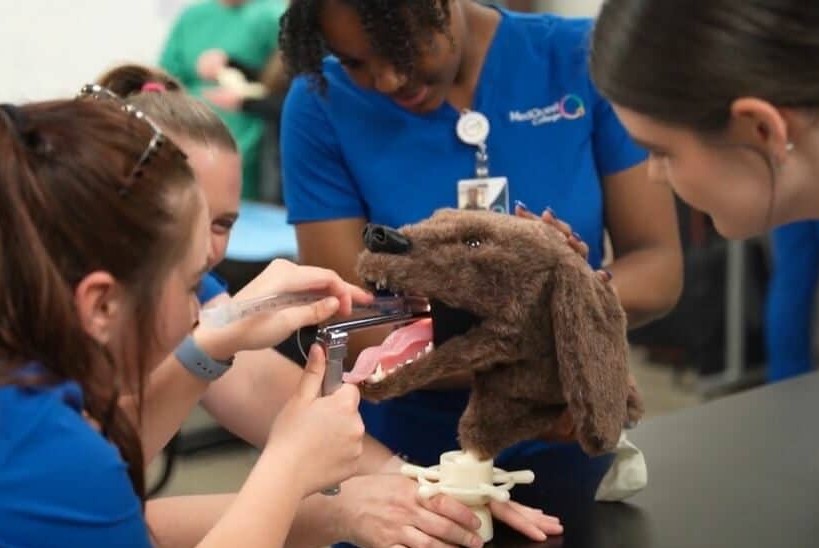Exploring the Path to Becoming a Vet Tech
Choosing to study at a Veterinary Technology College opens numerous doors for individuals passionate about animal care. These institutions equip students with the necessary skills to thrive in veterinary clinics, animal hospitals, and research facilities. With hands-on training and comprehensive coursework, learners gain a robust understanding of animal physiology, pharmacology, and surgical techniques.
First-Hand Experience: The Jump from Enthusiast to Professional
John, a recent graduate, shares his journey, “The transition from an animal health enthusiast to a professional vet tech was challenging but thrilling. The practical experiences and the demanding coursework at college prepared me for real-world situations involving animal care which I handle daily.” For more information on pursuing a degree in this field, visit this Veterinary Technology College to learn more about the curriculum and opportunities it offers.
Resource 1: Academic Advisors
Every prospective vet tech should consult an academic advisor at their chosen institution. These professionals provide invaluable guidance on course selection, career paths, and even post-graduate opportunities. Speaking with an advisor can help clarify the expectations and outcomes of the veterinary technology program.
Resource 2: Online Forums and Communities
Online communities like VetTechSubreddit and MyVetFuture offer a platform for aspiring vet techs to connect, share experiences, and find mentorship. These forums are treasure troves of practical advice and firsthand accounts from current students and seasoned professionals.
Resource 3: Pre-Enrollment Workshops
Many colleges offer workshops for incoming students. These sessions help bridge the gap between theoretical knowledge and practical skills, making the transition to college smoother. They also provide a preview of the curriculum and foster early connections among students.
Resource 4: Financial Aid Resources
Understanding the financial aspect of your education is crucial. Resources like the Federal Student Aid website and college financial aid offices can offer guidance on scholarships, loans, and grants available to veterinary technology students.
Resource 5: Hands-On Volunteer Opportunities
Gaining experience through volunteer work at local shelters or veterinary clinics can be a game-changer. It not only enhances your resume but also gives you a real taste of what your future career will involve. Volunteering is often highlighted by educational counselors as a way to stand out in your college application.
Real Life in the Field: A Day in the Life at a Clinic
Emily, a vet tech in a bustling animal hospital, details her typical day: “Every day brings new challenges. One moment I’m in surgery assisting with a complex procedure, the next I’m in the lab analyzing pet samples. The diversity of tasks keeps my days exciting and fulfilling.”
Conclusion
Embarking on a journey in veterinary technology is both exciting and demanding. By utilizing resources like academic advisors, online communities, and hands-on volunteer opportunities, prospective students can fully prepare themselves for the challenges and rewards of this career path. Integrating real-life experiences into your learning process not only enriches your understanding but also enhances your skills, making you a competent and compassionate veterinary technician.

